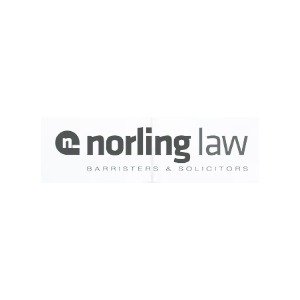Best Debt & Collection Lawyers in Auckland
Share your needs with us, get contacted by law firms.
Free. Takes 2 min.
List of the best lawyers in Auckland, New Zealand
About Debt & Collection Law in Auckland, New Zealand
Debt & Collection Law in Auckland, New Zealand focuses on the practices by which businesses or individuals attempt to bring in the money that's owed to them. This field covers a wide array of subjects including credit collection, personal loan collection, business-to-business debt recovery and much more. The responsibility of enforcing Debt & Collection Law is shared between The Commerce Commission and the Financial Markets Authority. They ensure that fair trading laws are observed and citizens can contest unjust practices.
Why You May Need a Lawyer
You may need a lawyer for a variety of reasons surrounding Debt & Collection issues. You may be facing harassing call or messages from your creditors, or they could be threatening legal actions against you. If your debt is substantial and complex, it may be beneficial to have legal help to consolidate or strategize your payments. On the other hand, as a business, you might need help in recovering debt from others or dealing with insolvency. In all these cases, a lawyer having expertise in Debt & Collection Law can provide invaluable assistance.
Local Laws Overview
The key laws regarding debt and collection in Auckland, New Zealand mainly revolve around fair trading, consumer guarantees, credit contracts and finance. It is unlawful for a business to mislead or deceive you or make false or misleading claims or statements. The Credit Contracts and Consumer Finance Act 2003 regulates consumer credit contracts, and protects debtors from overly rigorous interest rates and fees. The Fair Trading Act is also crucial in preventing unfair practices in debt recovery.
Frequently Asked Questions
What can be done if I'm harassed by debt collectors?
The Credit Contracts and Consumer Finance Act prohibits harassment and oppression by lenders. If you are faced with such a situation, you may report the concerned company to The Commerce Commission.
Are there any limitations on what debt collectors can do?
Yes, there are numerous restrictions on what debt collectors can do. For example, they must not abuse, threaten or harass you or anyone else involved in your case.
What happens if I cannot repay my debt?
If you are unable to repay your debt, your creditor may take you to court. The court may order income or property repossession to recover the debt. It is often best to seek legal advice in these complex situations.
Can I dispute a debt that I do not believe I owe?
Yes, you can dispute a debt that you believe you do not owe. You can write to the creditor explaining why you dispute the debt and ask for detailed validation and verification of the debt.
Can a debt collector contact my employer or family members?
Except to verify your identity or locate you, a collector cannot disclose information about your personal debts to your employer or family members without your consent.
Additional Resources
The Consumers' Institute of New Zealand and The Ministry of Business, Innovation and Employment offer resources and materials on their respective websites which can be of great help for someone in need of legal advice related to Debt & Collection.
Next Steps
If you require legal assistance, it is advisable to contact a lawyer who specializes in Debt & Collection law. Prepare for your consultation by gathering relevant documents and a list of questions that you may have. New Zealand also offers free or low-cost legal advice throughout Community Law Services, which could be a good starting point if you're not sure whether you need to hire a lawyer.
Lawzana helps you find the best lawyers and law firms in Auckland through a curated and pre-screened list of qualified legal professionals. Our platform offers rankings and detailed profiles of attorneys and law firms, allowing you to compare based on practice areas, including Debt & Collection, experience, and client feedback.
Each profile includes a description of the firm's areas of practice, client reviews, team members and partners, year of establishment, spoken languages, office locations, contact information, social media presence, and any published articles or resources. Most firms on our platform speak English and are experienced in both local and international legal matters.
Get a quote from top-rated law firms in Auckland, New Zealand — quickly, securely, and without unnecessary hassle.
Disclaimer:
The information provided on this page is for general informational purposes only and does not constitute legal advice. While we strive to ensure the accuracy and relevance of the content, legal information may change over time, and interpretations of the law can vary. You should always consult with a qualified legal professional for advice specific to your situation.
We disclaim all liability for actions taken or not taken based on the content of this page. If you believe any information is incorrect or outdated, please contact us, and we will review and update it where appropriate.












